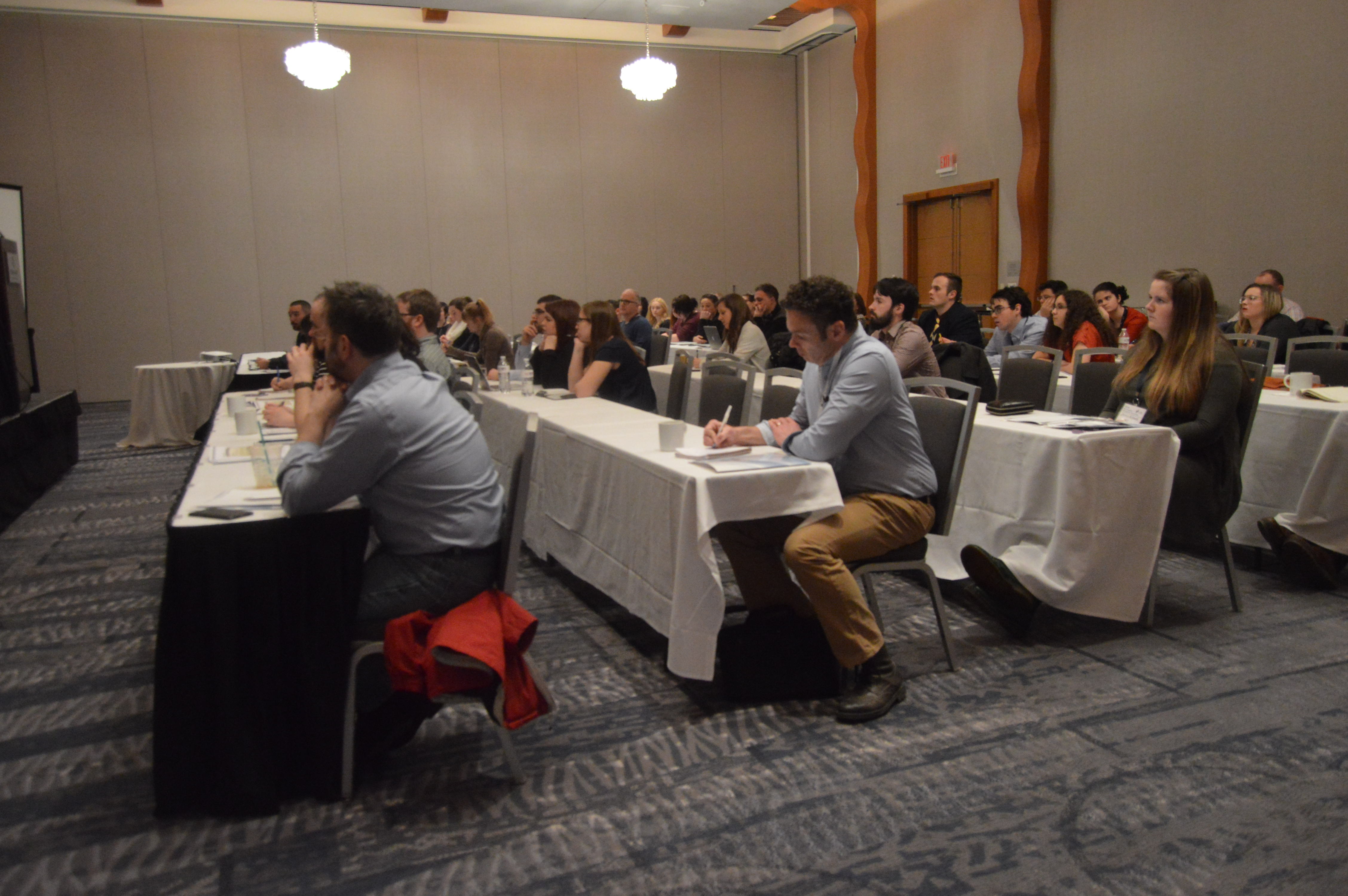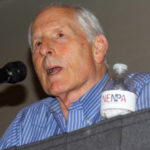
‘About 55 people attended the panel discussion on ‘Enhancing local government coverage.’
Focus on people, sources
two keys to enlivening
local government coverage
By Nadine El-Bawab
Bulletin Correspondent
Even though reader interest in local government coverage has waned, it is still important for readers and an important obligation of journalists, according to panelists at the New England Newspaper and Press Association’s recent winter convention. The panelists advised focusing on the people element in politics and on developing sources as just two ways to encourage increased reader interest.
Liz Graves, managing editor at the Mount Desert Islander of Bar Harbor, Maine; Frank Phillips, statehouse bureau chief of The Boston Globe; and Link McKie, a veteran journalist and journalism teacher, were the panelists discussing “Enlivening local government coverage.”

The panelists offered advice designed to improve local government coverage.
Graves noted that “when you are the only other person in the room, you get a sense of the alliances” between politicians.
She said “there is no telling when a boring topic will be essential for background information.” Graves suggested “getting to the meetings early” as a good way to talk to politicians because “they won’t be quite as focused on the (meeting) agenda.”
McKie said reporters should be at local government meetings because “you represent those people that aren’t at those meetings because they are at home watching the Kardashians.”

— Frank Phillips,
Statehouse bureau chief,
Boston Globe
Bulletin photo by Eliezer Meraz
Phillips talked about how technology has made journalism different now than it was when he began his career as a reporter.
“I come from a completely different world. I am a dinosaur. I was introduced into the newsroom with typewriters,” he said.
But even then, politics was what pulled him to journalism.
“I was reading every political journal I could get my hands on,” he said.
His fascination with politics kept Phillips interested in covering it, but he thinks that “if you are going to do this, you have to like politics and like politicians. You have be able to sit there and listen to a lot of dreary government news.”
He described working sources as “kind of like (being) an anthropologist; you are trying to get informants to tell you things.”
Phillips said the 10 years he spent early in his career as a reporter in Lowell were the best years of his journalism career and ultimately his “experience covering local politics makes covering the statehouse so much easier.”
Phillips recalled coverage of his that “was able to get legislation passed to help protect pregnant women in workplaces,” which he said made him “a big hero in some circles.”
He said reporters have to be mindful of the depth of their relationships with sources. Phillips said that when he became a close friend with one of his sources, he told his editor that he wouldn’t be able to cover that source anymore.
His advice on getting sources to open up was to find out what they are interested in and to talk to them about those interests. Phillips said that reporters should remember that when a source lies to them, that’s good for them; they just got a story.
McKie said that he was upfront with sources about being fair with them. McKie said he would tell sources, “‘If you dip your hand in the cookie jar, I will come after you,’ (and) when the time did come and I had to ask the hard questions,” the sources respected that he would write a fair story about them.
McKie thinks that at the end of the day, readers want to know about politicians’ character and “what they are like as people.”
A handout (available here) containing 11 tips about covering local government was distributed to members of the audience at the end of the panel discussion.
About 55 people attended the discussion, held Friday, Feb. 23, in the Renaissance Boston Waterfront Hotel in South Boston.
